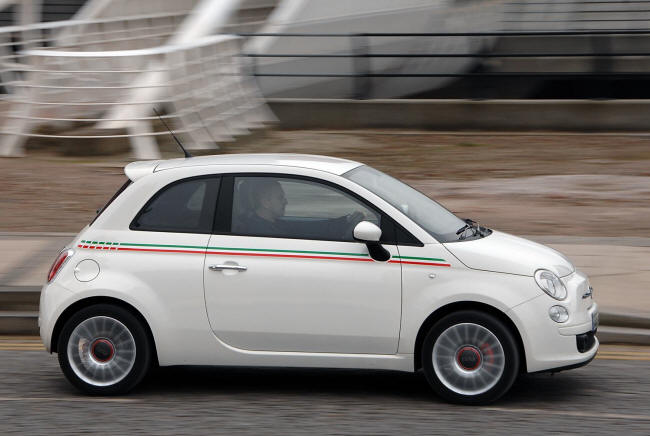Research by the kind fellows at Auto Express have revealed that some diesel cars have to be driven in excess of 30,000 miles a year before they become more economical than their petrol siblings.
As expected, motorists are converting to the “derv” side in droves as fuel prices across the UK rocket, with diesel cars now accounting for over half of UK car sales.
Auto Express found that many of the popular diesel models actually cost more to run when taking into account purchase prices and other motoring related expenses.
A diesel Fiat 500 may return a staggering 72MPG, however the £2400 premium over the the equivalent petrol model means that it would need to cover a staggering 32,202 miles a year over three years before it becomes cheaper. When you consider the 500 is a “city car”, covering that kind of yearly mileage is doubtful.
The same does for many other diesel offerings, all requiring astronomical yearly mileage to actually work out cheaper. Petrol engines have made huge advances in recent years and have closed the “efficiency gap” as emission and air quality regulations tighten.
If you are buying a new car then our advice is to do your sums, the assumption that opting for a diesel car will save you money may not actually be correct.
[ad]






You are quite right, you need to do your sums. It’s mostly down to how much the premium is for diesel! I have a Peugeot 308 SW 1.6 e-HDi SR and the break even mileage according to Parkers is 1351 miles when compared to the equivalent 1.6 petrol, an easy saving. In comparison, if you bought a Volvo V50 DRIVe (115bhp) SE instead of the 2.0 litre petrol version, it would take you 3 years / 30691 miles to break even.
They miss the point on some things though – as a 21 year old male, it costs me not far off double the price to insure a 1.8 petrol of the car I drive (A3), as opposed to the 2.0TDI
Similar power, similar 0-60… but I pay £1,000 more to insure the petrol. They also miss out on re-sale: some cars will be a lot harder to shift in petrol guise.
A valid point on occasion, but most of us have realised that small petrols are cheaper than small diesels to buy, cancelling out any fuel savings.
I am currently in the process of buying a new car and stumbled across your article in the process. I was stuck on the whole which is better value for money Petrol or Diesel? I think after visiting a few websites I will go for Diesel as I do drive a lot in my job and since you can travel further (better mpg than petrol) then this will be the best option for me.